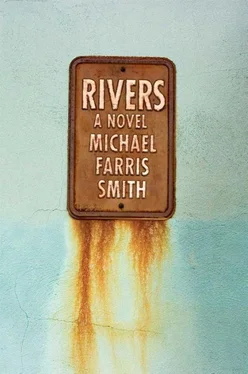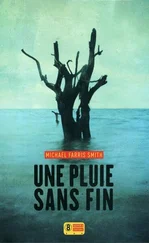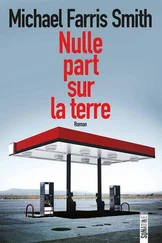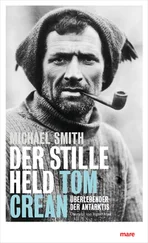He wrinkled his brow. Thought about it. “How much?” he asked, knowing she had already looked.
“A lot.”
“A lot a lot, or just a lot?”
“Just a lot.”
He drank from the beer. The crickets and tree frogs sang their song and it echoed through the twilight and across the land.
“Well,” he said.
“We probably can’t save it before our anniversary.”
“Probably not.”
“But we could probably save it by the spring. That’s six months. You think?”
He liked how she sounded. Excited and hopeful and a little nervous. He had never once thought about Venice but the thought of it now, with this woman, made him feel as if he were about to commit to a romantic adventure that you only read about in paperback.
“I think we can. If that’s what you want,” he said.
She uncrossed her legs and got up from her chair. She pushed his arms back and sat down in his lap and squeezed him around the neck until he coughed.
THEY ARRIVED IN AN OVERCAST city and for the first three days of the ten-day trip it rained off and on, but they didn’t care. Their hotel room was on the top floor and the window looked out across a courtyard and a canal. In the mornings the man who arranged the small tables in the courtyard sang beneath the light rain in a gentle tenor voice. They crawled all over one another as it rained, then fell back asleep and woke again and listened again and felt as though they had been removed from reality and set free in some other place that existed only to please them.
The hotel was three floors and the rooms were small. The staircase was wide enough for one and its turns were tight. The walls were brick with clumps of mortar hanging from between the bricks and Cohen couldn’t go up or down the stairs without commenting on the sloppy job someone did a long time ago. The hotel was run by two sisters and their cluster of indistinguishable teenage children who vacuumed the rugs, watered the plants, attended the small bar and two tables, went out for morning croissants, swept the foyer, changed the towels and the sheets, delivered the morning newspaper, and whatever else. The sisters wore their black hair pinned up and only one showed streaks of gray. They were frumpy and sat with folded arms and talked incessantly and moved only if someone came along and needed something and sometimes not even then, only shouted out a quick instruction to whatever child happened to be in earshot and that child would hurry to it but not without mumbling something in the tone of teenage angst that was discernible in any language.
When it wasn’t raining, they walked and walked. Though Elisa had two guidebooks and a detailed list of what she wanted to see and when she wanted to see it, she was taken by the city and its ancient streets and the heartbeat of the language and the quaint bridges and the architecture and all she wanted to do was walk. They avoided the museums and cathedrals except to admire the exteriors—the Gothic arches and the details of the statues of the saints and the complexities of the stained-glass windows. All of which fascinated Cohen, as in the world of efficiency and symmetry that he had learned from his father, he had forgotten or perhaps never realized that buildings could be constructed with such imagination. Instead of following the lines of tourists in and out of the starred spots on the map, they moved across the canal bridges and walked down narrow streets that led to other canal bridges and other narrow streets. They were frequently lost, having to double back, spending an hour or more trying to figure out exactly where they were but finding local cafés and bars along the way and not caring a bit, reveling in the notion that they had discovered some secret part of the city that the sightseers would never know. For three days they clung to one another in the hotel room and then walked with locked arms through the floating city.
COHEN GOT UP FROM THE wooden pew and looked at the place where he had found refuge. A tree covered in Spanish moss had fallen through the roof and lay across the pulpit and mold had spread across the choir loft and the baptismal. The stained-glass windows remained only in fragments. A lamb at the feet of someone in a white robe. The bodiless head of Christ bleeding from the crown of thorns. Half of an angel looking over the headless Mary holding the baby. The Bibles and hymnals remained in the slots in the backs of the pews, but their pages were yellowed and wavy. The hardwood floor of the aisle was covered in water and scratched from the nails of the animals that came and went. He rubbed his forehead and it was damp and he ached all over and he walked to the open doors of the sanctuary and looked out. He figured this was about as good as it was going to get. He was weak but knew that he had to begin.
He walked out in the rain to the muddy road with his arms folded and his hands tucked under his arms. His clothes were still damp and he couldn’t have spit if he’d wanted to. His mouth was dry and his throat tender, the muscles of his stomach and chest tight as he shook from the fever and he wanted to run but knew better. Things moved in the brush, startling him and startled by him. At the end of the road he knelt and rested for few minutes and then he got up and kept on, the walking easier along the two-lane highway, out of the mud and puddles.
He walked on. An hour behind him and he hoped he was halfway. At a gathering of honeysuckle along the fencerow, he stopped and put his face into it and opened his mouth and shook the bushy vine. The rainwater splattered onto his face and tongue and he lapped like a desperate dog at the cold, refreshing drops. The water from the leaves ran down into his mouth and throat and momentarily relieved the fever and he moved along the fencerow, doing the same thing with anything leafy that would shake, and then he sat down for another few minutes before walking again. Another hour and he could see his road up ahead and his pace quickened as he thought of the bottles of water and the dry clothes and the bottle of aspirin and the dry place to lie down. He moved in some half-walk, half-run, gimpy and awkward with his wet, numbed feet but driven by the thought of home. He came to his road and hurried across the red mud, sloshing along as fast as his worn body would take him, and then there was the house and he almost cried out in relief but as he got to the driveway and saw the tire tracks and the front door open his anticipation quickly turned again to despair.
He stopped in the front yard. Watched and listened.
Then the dog stuck its head out of the front door and he walked on up. The dog met him at the steps and he touched its head as he walked past and into the house.
In the front room, the cot and the blankets were gone and the closet door was open and the .22 and the black raincoat were gone. The electric heaters that he ran off the generator to keep warm were gone. He limped on into the kitchen and the cooler that had been filled with water bottles was not there and the upper cabinets had been cleaned out. Every can. Every box of anything. He got down on his knees and opened the bottom cabinets and what little there was in them remained, including a dozen or so bottles of water, and he opened one and drank and drank and when it was done he tossed it aside and he opened another and did the same. He found a few ounces of whiskey in a long-forgotten pint bottle and he opened it and took a swallow and it burned and warmed. He took another swallow and it twisted his face and then he sat on the floor and let the whiskey settle all the way through him. He looked again through the lower cabinets and there was nothing to eat as he had put all the food up high to keep it safe. He stood and opened the drawer where he kept medicine and bandages and antibiotic ointment and other pills and creams and it was emptied but for half a bottle of aspirin that had slid to the back. With his hands shaking he managed to get the top off and he shoved a handful of the chalky tablets into his mouth and chased them down with several gulps of water.
Читать дальше











